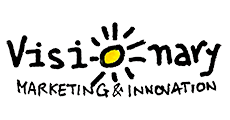Digital, taking agriculture beyond borders
Appearances are often deceptive: Agriculture is an industry that is thought to be very traditional and artisanal, very far from technology and digital. Well, just like some of you, I believed that too. However, I recently discovered that this is not really true. I’ve had the chance to discuss with Heico Keich, CEO of Trademachines, a German start-up that set up a search engine for used machinery.
TradeMachines is a search engine for used machinery, which gathers the offers of many sellers and traders around the world. It allows the customers to have a transparent overview of available used machines, and sellers to be more visible and to reach a wider target. He enlightened me on the industry and its evolution. Believe it or not, people who work in the agriculture sector are more connected than we think. So I was interested in digging in on one key element: how does digitalization impact the agriculture industry? This article will prove everyone who thought digital and agriculture were unrelated wrong. Just like researching and writing this article did to me!
Rapid trend towards innovation
The machinery market is growing at a very fast pace: innovation after innovation. The machines, the tools and equipment are being more and more modernised. We see a lot of extremely expensive automated and connected machines that can for instance record which amount of chemicals should be used in a given field. Such technologies help farmers to be more productive in their work, and, who knows, maybe to expand their business. In the past, the same amount of hectares required at least 5 times the manpower compared to today.
Nowadays, two people can own a farm and work effectively, with technology that enables them to be increasingly productive, if used correctly, of course.
This is great news for the industry, but not for all farmers, especially the smaller ones.
These sophisticated machines cost a fortune. A lot of them cannot invest the required amount of money. However, they need to find something to stay in the game and compete against enormous agri-businesses that are all spread over the world. They hence face a big dilemma: they need the machines, but they do not have the funds to invest.

This situation explains perfectly the growth of the used-machines industry, which allows them to innovate by getting a better version of the machine they have.
You might wonder: What’s the link with digital? Well, transparency, planning and fairness. Thanks to search engines and platforms, it is easier for a farmer living in a small village to find a used tractor and grow his business.
Online vs. offline strategy
Before digitalization, agriculture was an industry that relied a lot on print; farmers referred to agriculture newspapers and magazines. Nowadays, digital businesses like Trademachines try to innovate all the time.
They contribute to the digital transformation of traditional industries and businesses; their aim is to create an online platform that would gather industry players from all over the world to trade used machines.
When it comes to their own marketing strategy, Heico Koch did not choose between online and offline campaigns. According to him, the two channels are not opposed, but on the contrary, they are complementary.
The online channel is mostly used for performance. It consists of emailing campaigns, newsletters on the latest technologies and latest available machines, methodologies and advices, and SEO campaigns.
On the other hand, offline campaigns sharpen TradeMachines brand image: an offline strategy is also important in addition to the online one in terms of sustainable creation of awareness.
Collaboration
Back to the farmers: when they use digital platforms and search engines, they collaborate with each other. But why would this be an advantage and advancement for them?

Obviously, they get a worldwide exposure. They can get in touch with someone at the other end of the globe! Markets are connected, transforming traders into managers of the deal. To be part of this global collaborative experience, traders must pay the platform every time someone is referred to their page. It is a quite common source of revenue for search engines and platforms, which you might have already come across: yes, you guessed right, it is the cost per click.
Trends
Digitalization has made so many different scenarios possible: it is a changing environment and a changing world! When I asked Heico if machinery would take over human labour in agriculture, he laughed and said no. So you can reassure all the farmers you know. Their jobs are saved! Automation, however, is without any doubt a mega-trend, for agriculture and industry and for many other sectors. But it will not erase manpower. Of course, some processes can, and should, be “automated”, such as the amount of food one daily gives to livestock, or for other simple tasks. However, automation will never replace the gut feeling, and the connection that human can create with their animals and their land.
There’s a big discussion going on in the US at the moment, about interconnectivity. Machine manufacturers can now constantly collecting data from the machine itself. Their excuse for this sophisticated data collection is to help farmers reach their maximum productivity by giving them advice on how to use the machine at best.
Personally, I think what they are really trying to do is collect more and more data, to understand customer behaviour, and to find out how to reach them in terms of marketing and sales. And of course, the main goal is: more revenues for manufacturers! Nonetheless, we can consider that it is a win-win situation: customers get a better service, and manufacturers gather users’ data.
- Nobody understands how AI works - 23/03/2024
- Naturally Smart Writing, Beyond the Artificial - 18/03/2024
- LinkedIn’s new features under the microscope - 14/03/2024




